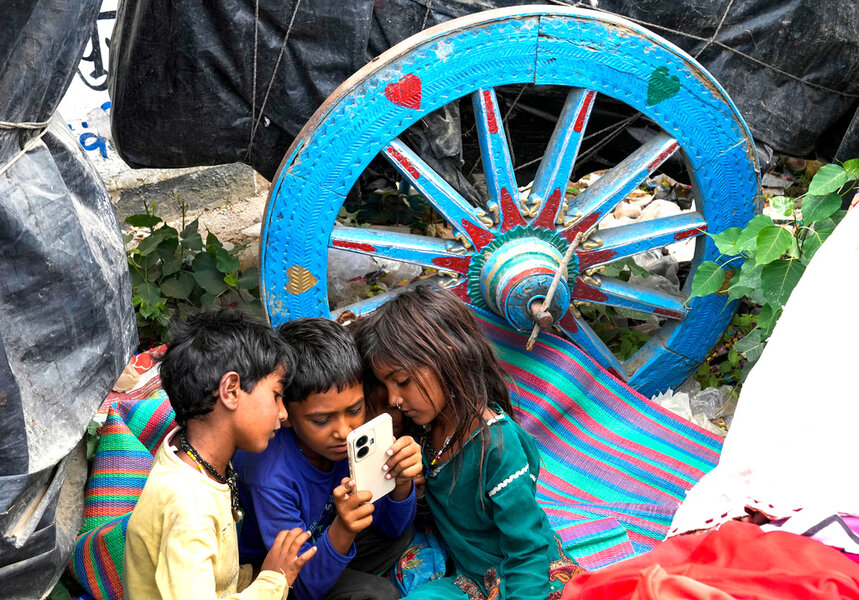An India of 'trusted collaboration'?
Loading...
When the interests of nations align, do values follow? That is the cautious hope in Washington as Indian Prime Minister Narendra Modi arrives this week on an official state visit.
As the world’s most populous country and fourth-largest economy, India has become an attractive partner for the West amid rising tensions with China and Russia. Yet under Mr. Modi, who rose to power nearly a decade ago, the country’s constitutional principles – like civic secularism and freedom of speech – are in retreat.
The former, however, may be providing corrective leverage to the latter. As India seeks to assert its newfound clout abroad, it is also acknowledging the primacy of international rules and norms.
“Our job today is to bring global awareness into the minds of Indians,” Subrahmanyam Jaishankar, India’s minister of external affairs, told The Economist last week. "To me, security is such an enormous landscape out there, a whole very intricate set of connections and interactions and relationships."
Mr. Modi arrives in Washington on strong political and economic tail winds. He is gliding toward reelection next year, his personal popularity soaring as a result of vigorous domestic investments in education, health care, and housing. Trade with the United States reached $191 billion last year, surpassing China to become India’s largest economic partner. India is negotiating a free trade agreement with the European Union. A similar accord with Australia went into effect late last year.
But his reception in the West is complicated firstly by his refusal to lessen India’s close ties with Moscow – Mr. Modi has steadfastly refused to condemn Russia’s invasion of Ukraine – and secondly by increasingly anti-democratic practices at home that have diminished the rights of women and religious minorities.
Those trends leave Western powers with a discomfiting choice, argues Daniel Markey, a South Asia expert at the United States Institute of Peace, in Foreign Affairs: Unless India changes, the West must “cooperate with India on the reality of shared interests, not on the hope of shared values.”
That is why Mr. Jaishankar’s acknowledgment matters. Transparency is the starting point for trustworthiness. In Beijing on Sunday, U.S. Secretary of State Antony Blinken emerged from meetings with leader Xi Jinping saying that “direct diplomacy is the best way to advance US interests and values and responsibly manage competition.” In the way that nations speak to each other, his message may have been meant as much for Mr. Modi.
“When you speak of a world of trusted collaboration, because that’s the world we are heading towards, which countries will be able to work with which other countries?” Mr. Jaishankar asked. In Washington this week, the answer to that question may rest on whether President Joe Biden and his counterpart from India find common principles to build on.





